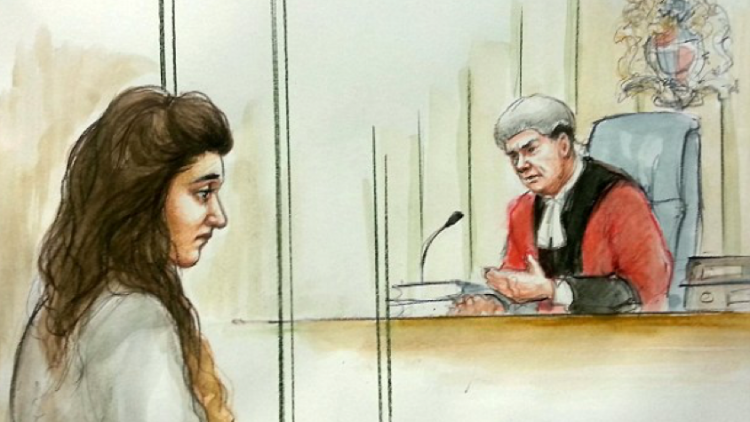
Women’s Security and Movement under Daesh
Over the last two weeks, we have looked at how Daesh are treating women domestically,and the lack of prospects they have for the future. This week, we have chosen to focus on the laws enforced by Daesh under the ‘caliphate’ and the consequences of breaking the rules.
Any war-torn country is bound to be unstable and insecure, let alone under Daesh in Syria – a country which has become home to the world’s biggest humanitarian crisis.
The harsh code of conduct that Daesh has imposed has left women in a suffocating, stagnant position. Leaving the house under Daesh rulings is only allowed under “exceptional” circumstances and women are told to remain “hidden and veiled”. The Hisbah, Daesh police, and their female unit, Al-Khanssaa Brigade, are severe in implementing laws, which has meant that husbands are forcing their wives and daughters to stay at home to avoid confrontation.
One journalist who was in touch with female Daesh female recruiters commented: “They warned me that their days would revolve around being a wife and a mother, and would be spent largely indoors.”
Under Daesh, women witness shocking practices including animal trap clamps being placed on women’s breasts for breastfeeding in public, or being whipped or beaten for wearing the wrong clothing. Even the smallest transgression, like carrying a brightly coloured handbag, puts them up for scrutiny and punishment.
How Tareena Shakil fell for Daesh
Last week, a 26-year-old mother formerly from Burton-upon-Trent in Staffordshire was sentenced to six years in prison for joining Daesh and encouraging acts of terrorism. Shakil, sentenced at Birmingham Crown Court, took her 14-month-old toddler with her and is the first woman to be convicted of the charge after having returned to the UK.
Her testimony confirms the horrific reports about women’s lives under Daesh. She explained that Raqqa felt like “the most dangerous place on earth”. Upon arrival, Shakil said, “your phone was taken off you and there was this evil Saudi woman who ran the house for single women, known as a maqqa.”
Before joining Daesh, Shakil was in a highly troubled relationship and was searching for a sense of purpose, turning to online avenues. The signs that she was being lured into joining Daesh were not picked up by those around her, including her mother, Mandy. Still devastated by recent events, Mandy recalls that her daughter attended debates about the Syrian crisis and mentioned meeting the man who would later become her husband.
“She told me that she had fallen in love. I wanted her to continue with her degree, but she left because she said she wanted to be a good wife. She got pregnant very quickly after marrying and I looked forward to being a grandmother,” said Mandy.
But Tareena got into rows with her husband who eventually returned to his native Yemen where he took another wife.
Shakil was clearly influenced by the false promise of a better, utopian life under Daesh. But when she realised the dreadful conditions of life under this terrorist organisation, she made a desperate escape.
The sentence will take six years of her life away from her, but the horrific life offered in the war-torn region under Daesh will likely be her biggest regret.
For more information, please see our ‘where to turn’ page.
